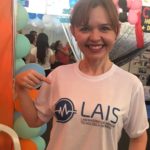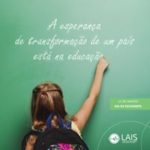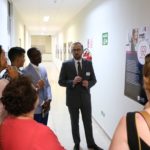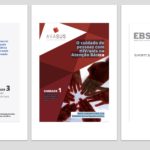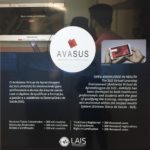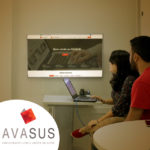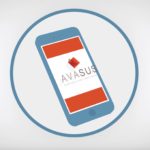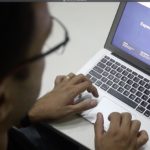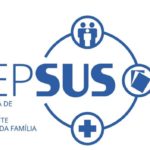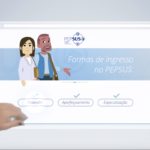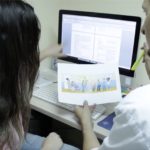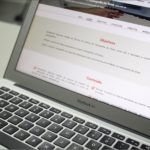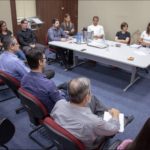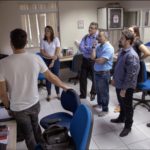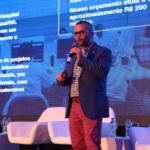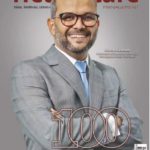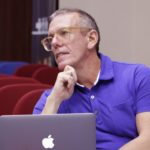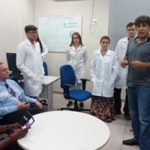Laboratory for Technological Innovation
Brazil’s federal university provides an open education repository of online resources to impact African citizens
Making science an instrument of love for others… This is the mission of one institution in Brazil and the outcomes of their service is overwhelming. Of particular interest is how they are leveraging technology and online learning.
Just walk the halls of the Laboratory of Technological Innovation in Health (LAIS) at the Federal University of Rio Grande do Norte (UFRN), in Natal Brazil, you’ll see posters showcasing more than 60 projects in the areas of Bioengineering, Assistive Technologies, Health Informatics and Permanent Health Education.
The reach and impact of their humanitarian approach can be felt worldwide.
UFRN and LAIS have developed a variety of platforms to promote health through online learning.
Among them are:
- Sabia’ is a single login platform providing access to sites within Brazil’s Unified Health System;
- PEPSUS is the Permanent Education Program in Health providing lifelong learning through online courses; and
- OpenPacs is a suite of tools with hundreds of millions of images from CT, MRI, Ultrasound, and X-ray among others. The database when coupled with reports generated by OpenTelediagnosis, OpenBIMED, is used in professional training.
A free open education resource repository tool, called AVASUS, is the Virtual Learning Environment of the Unified Health System, a project funded by the Brazilian Ministry of Health in cooperation with UFRN. LAIS developed and maintains the platform.
In AVASUS, learning content is designed using video problem situations, animations, interactive e-books, web pages, podcasts, comics, games, and other resources that support distance learning and motivate engagement.
Due to its fantastic reception, it is expanding to other countries with content being translated into multiple languages including English, Spanish, even Swahili… A language spoken in Kenya, Uganda, Mozambique, Zambia, and other Sub-Saharan African countries. A population of approximately 50 million.
With 70% of inhabitants living in in the countryside without access to health services, Tanzania desperately needs access to education on basic healthcare. While visiting back home in the South of Brazil, a missionary in Tanzania, found AVASUS and contacted LAIS.
Through a partnership, doctors and missionaries began working with LAIS to translate and use the AVASUS resource.
Nothing can be more rewarding than using online learning to change the lives of people through education, especially in the development of countries that present critical situations regarding healthcare.
LAIS considers innovation to be a very important tool for the socioeconomic progress of nations in transition to new stages of development.
The Laboratory for Technological Innovation in Healthcare (LAIS) is one of the main providers of healthcare IT services in Brazil. From distance learning platforms and accessibility technologies to business intelligence and biomedical devices, LAIS is in charge for several nationwide projects of the Ministry of Health.
Located in Natal, Brazil, LAIS is part of the Universidade Federal do Rio Grande do Norte (UFRN) and was created in March 2011 with a focus in the areas of Health, Engineering, Information Technology and Communication. However, the work done in the Laboratory is not restricted to Rio Grande do Norte.
Worldwide Reach in Health Education
Through national and international cooperation, LAIS has been strengthening the health system and developing projects with FIOCRUZ, the World Health Organization, the Ministry of Health, the Harvard School of Public Health, ABIMO (Brazilian Association of Medical, Dental, Hospital and Laboratories Articles and Equipment), among others, based on the Sustainable Development Objectives (ODS) contained in Agenda 2030 of the United Nations (UN).
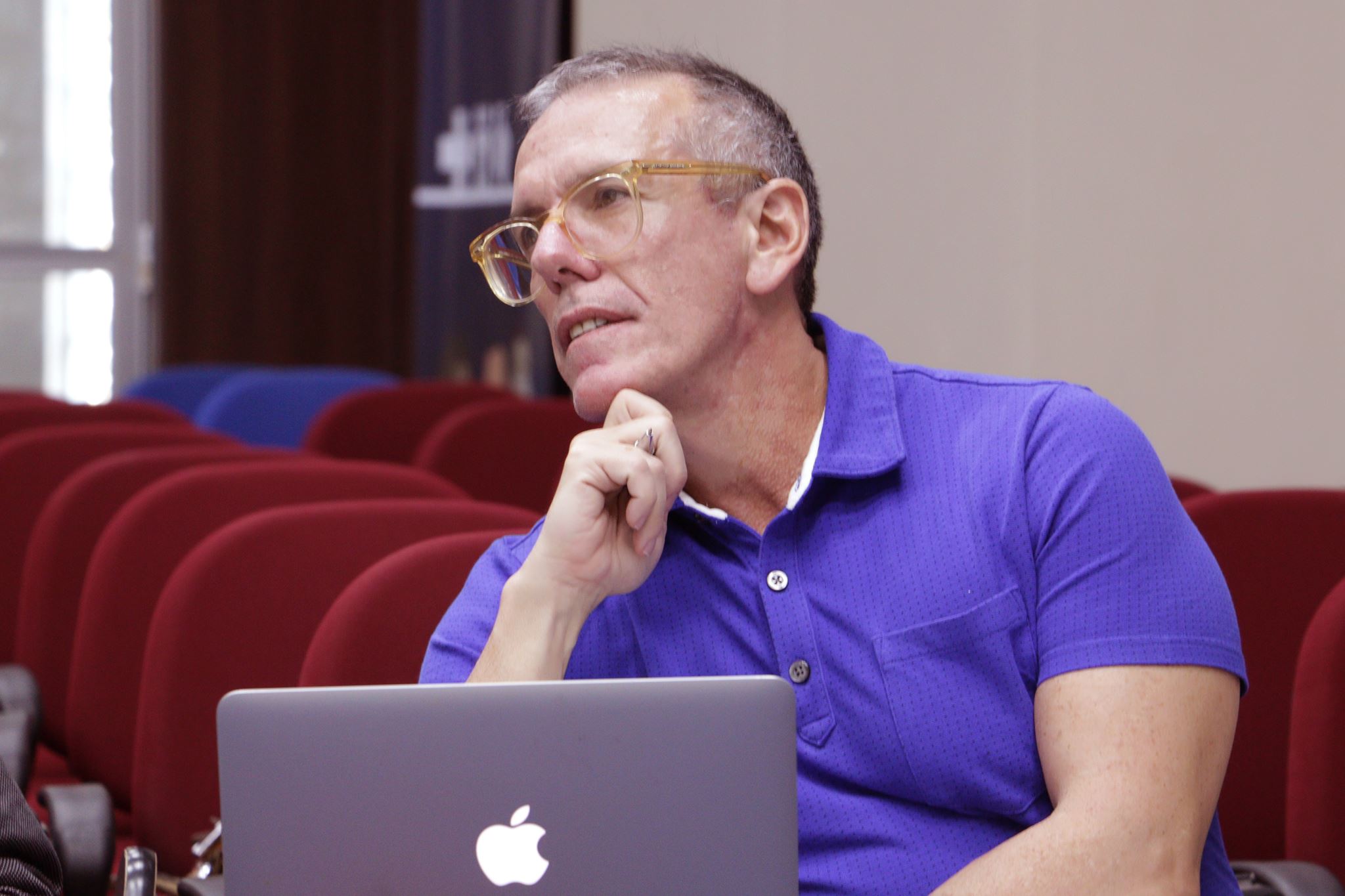 Carlos Alberto P. De Oliveira, Professor of the Multidisciplinary Institute of Human Education with Technologies at UERJ and researcher at LAIS/UFRN espouses that the mission of LAIS aligns with the goals of the UN agenda and UNESCO’s Incheon Declaration. A strong focus is given to using open and distance education along with open educational resources as a fundamental strategy for giving access to education for all, especially those left behind.
Carlos Alberto P. De Oliveira, Professor of the Multidisciplinary Institute of Human Education with Technologies at UERJ and researcher at LAIS/UFRN espouses that the mission of LAIS aligns with the goals of the UN agenda and UNESCO’s Incheon Declaration. A strong focus is given to using open and distance education along with open educational resources as a fundamental strategy for giving access to education for all, especially those left behind.
With a focus on people and social entrepreneurship, the mission of LAIS is “Making science an instrument of love for others, aiming at citizenship, social welfare and development of health in Brazil through innovation.”
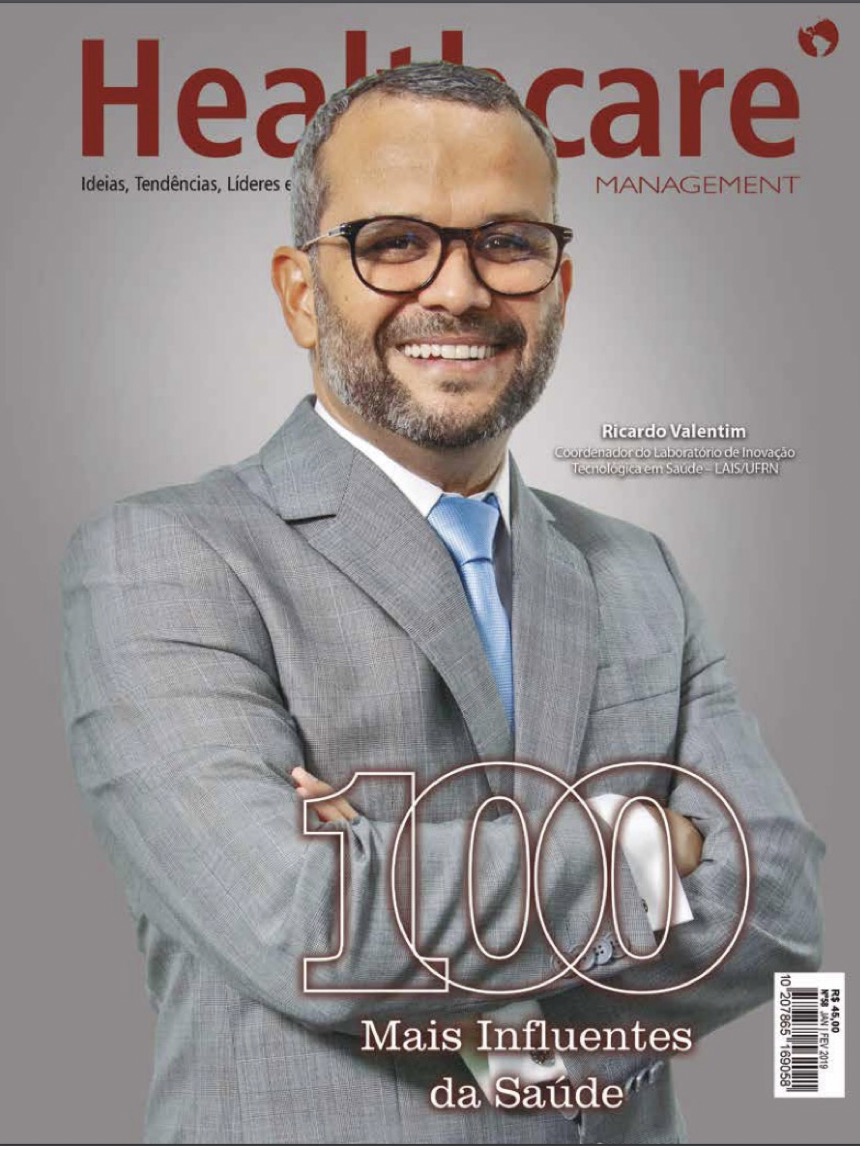
Professor Ricardo Valentim, Coordinator for LAIS, believes that Distance education, or technology-mediated education, which he feels is a more appropriate term, has a mission and a very important role to democratize access to knowledge. It then breaks the geographical barriers and brings the individual and the knowledge society closer together, bringing the possibility of people in remote or arid areas who would not have access to certain formations of the highest quality to approach education. Using online learning as an instrument to advance humanitarian action making society more productive, LAIS carries education everywhere regardless of distance or geographical location. Valentim leads LAIS to maximize this know-how and technology to help other countries with the same needs to develop their societies. It is not surprising the Professor Valentim and LAIS were recently recognized among the “100 More Influential in Healthcare.”
LAIS is the first laboratory installed in a Brazilian hospital, the Universitário Onofre Lopes Hospital (HUOL), to promote technological innovation in health. In the last six years, LAIS has drawn national and international attention, developing more than 60 projects and publishing 25 theses, 37 dissertations, 39 books in the areas of Bioengineering, Assistive Technologies, Health Informatics and Permanent Health Education.
Open Resource Tools and Platforms for Healthcare
Through a single sign-on platform called Sabiá, online users have access to a wealth of educational tools and resources developed my LAIS.
OpenPACS is a suite of tools and services in the field of medical image management at Hospital Universitário Onofre Lopes. With a collection of more than one hundred thousand examinations in the most varied types of image acquisition (Ultrasound, Computed Tomography, Magnetic Resonance, X-Ray, Hemodynamics, among others), the number of images exceeds tens of millions. The suite includes the following tools:
- OpenPACS – (Picture Archiving and Communication System): The PACS is the system responsible for storing and managing image exams providing both the capture of the images in the equipment and the delivery on the computer of the health professionals.
- OpenTeled Diagnostics – allows health professionals to carry out the activities of diagnosis of the exams, remotely or not, supporting resources specific to the characteristics of a university hospital.
- BiMed is a Medical Imaging Bank that provides a database of anonymous medical exams with images to the scientific and academic community. The idea is to enrich the learning process in undergraduate and medical residency through a wide variety of clinical cases that can be used in both face-to-face and distance learning. In addition, the scientific community can enjoy this database for the training of intelligent algorithms, the testing of algorithms already trained and other researches that require a large amount of data / images of patients.
PEPSUS is the Permanent Education Program in Health providing lifelong learning. Specialized online courses for family health are offered through AVASUS in three ways: Extension, improvement and specialization.
AVASUS Virtual Learning Environment
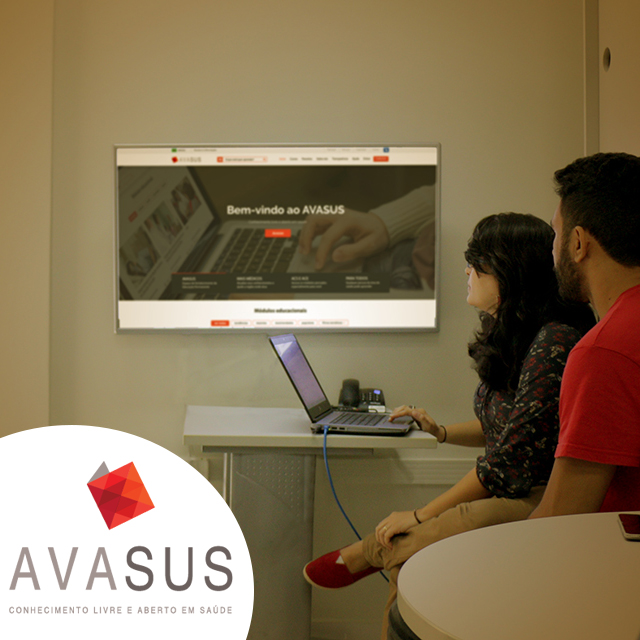 AVASUS is a virtual learning environment developed to qualify training, management and care in the Brazilian Unified Health System (SUS). This is done through distance education modules offered free of charge to professionals and also users not linked to the SUS. All courses are certified by UFRN or other educational institutions that participate in the platform, also in the development of the modules offered.
AVASUS is a virtual learning environment developed to qualify training, management and care in the Brazilian Unified Health System (SUS). This is done through distance education modules offered free of charge to professionals and also users not linked to the SUS. All courses are certified by UFRN or other educational institutions that participate in the platform, also in the development of the modules offered.
The educational modules, in turn, have as differential a methodology of problem-based learning, using a variety of digital and communication tools including video-based simulations, gamification, podcasts, and the like.
AVASUS arises because of the need presented by the Unified Health System itself. Currently, the SUS serves about 150 million people. According to data from the Brazilian Ministry of Health itself, responsible for managing the system, SUS is one of the largest and most complex public health systems in the world, ranging from simple care for blood pressure assessment through Primary Care , until organ transplantation, guaranteeing integral, universal and free access for the entire population of the country.
An alternative that allows the process of internationalization of effective practices in the field of public health, AVASUS places an emphasis on those in which Brazil is a world reference. In this way, the project is expanding to other countries by adapting the platform to other languages, including English, Spanish, and Swahili.
Through AVASUS, Brazil has a system with the potential to make the country a public policy proposer in international technical cooperation in health, with insertion of strategies for global emergencies, for the refugee crisis and other agendas of global interest.
AVASUS aligns with two dimensions of the UN agenda’s Sustainable Development Objectives (ODS) including social and economic goals. AVASUS dynamically streamlines the learning process in the scope of health education through distance education resources. By having educational resources at a distance, AVASUS collaboratively provides users with learning tools and access to programmatic content of the modules anywhere. AVASUS presents itself as a free tool for universal education and learning.
Tanzania, a country located in West Africa, on the list of low-developing countries in 151st position, is an example of the benefits coming from access to AVASUS. About 70% of the country’s inhabitants live in the countryside with limited or no access to education and health services. Having access to information on basic health care becomes paramount.
Fortunately for Tanzanian citizens, Rafael Silva, a missionary working through the international organization Youth with a Mission (YWAM), discovered AVASUS while visiting back home in São Paulo and looking online for a way to use technology to promote health in Tanzania. Approaching LAIS for help, a partnership was created to develop strategies of assistance. LAIS, YWAM, and doctors of the Community Council of the city of Morogoro are working together to maximize the AVASUS system to serve not only Tanzania but surrounding countries who also have Swahili as the official language. LAIS provides AVASUS resources for inhabitants while missionaries use AVASUS to provide training and doctors utilize content to make a difference. Introductory courses such as how to fight epidemics, basic healthcare and hygiene.
With Swahili spoken in Kenya, Uganda, Mozambique, Democratic Republic of Congo, Burundi, Rwanda, Zambia and part of Ethiopia and Comoros, about 50 million people, a total of 10-15% of the inhabitants of all sub-Saharan Africa, according to data from the World Bank, can be reached by these online learning resources.
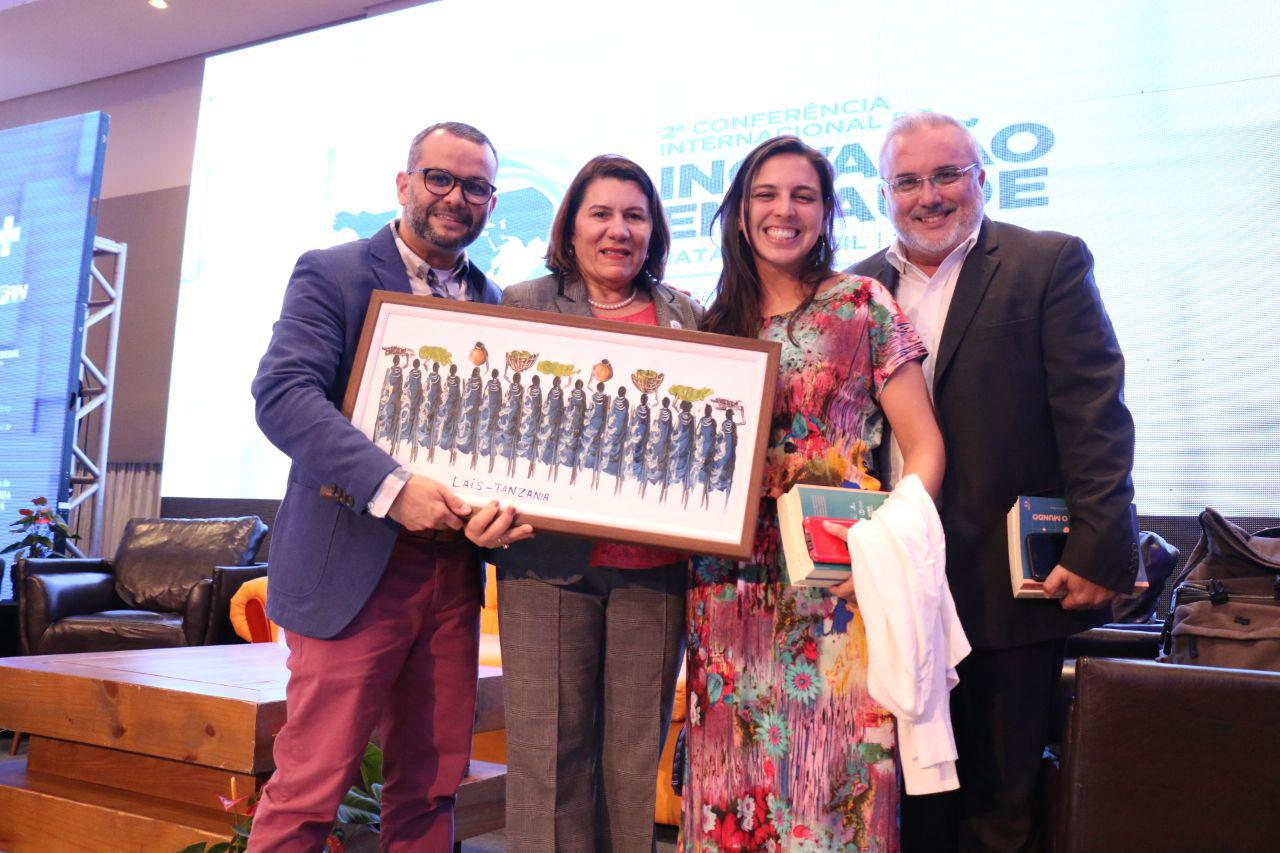
Visions: Health education to transform the future is a video documentary capturing the essence and impact of this awe-inspiring partnership. What an amazing way to address the development of countries that are faced with critical situations regarding healthcare.
In appreciation of the partnership, a Tanzanian artist created a beautiful painting which was sent to Brazil and presented to LAIS at an international conference on innovation in health. It clearly demonstrates the powerful impact a group can have by using online learning when making science an instrument of love for others.

